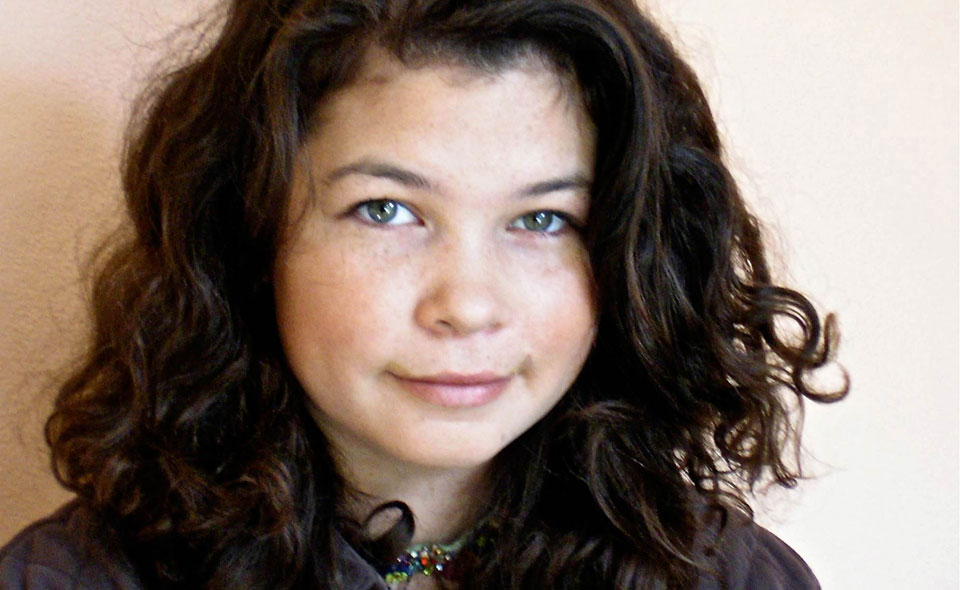The onset of psychosis was slow and subtle, but looking back, there were signs that Toby may have started to become unwell in her last year at high school, when she abruptly abandoned her long-term goal to study law and commerce, realising that she might not enjoy it. But adolescence is a time of change, and she was optimistic about her future, even though she wasn’t clear what it would hold. Based on her past, we were confident that she would do well at anything she chose to pursue.
Toby decided to work and travel for a year after school, before returning to study. She had a couple of part-time jobs and moved out of home to share with friends about half-way through 2003. She was so enthusiastic about living independently.
But as the months passed, something changed. She was still very socially competent, bright and high-functioning but gradually she became more and more disorganised: uncharacteristically forgetting things, turning up late, losing her belongings. She began to make big changes, suddenly and frequently. She decided to move out from the place she was sharing, and she left her furniture behind. She went to stay with a friend on her family’s farm. Then after a few months, she returned to Perth for the weekend, and decided to stay, leaving her belongings at the farm … She began to move from house to house, quite frequently couch surfing.
This quote by Story People describes the way she seemed at the time: She left pieces of her life behind her everywhere she went. “It’s easier to feel the sunlight without them”, she said.
She was still positive, and only occasionally expressed concerns about the direction her life was taking. She voiced some new and odd beliefs, and began to have difficulty organising things even if she really wanted to do them, like tracking down and picking up a needle for her record player. She began to have difficulty carrying out simple tasks like making herself toast ….
The overt signs of psychosis began in 2005, around Christmas, when she said the dogs were talking and the neighbours blamed her for teaching them swear words; she also appeared to be responding to unseen stimuli. She was diagnosed with psychosis in January 2006. She politely and firmly disagreed with the diagnosis, partly because she didn’t want it (understandably), and partly because of the lack of insight that often accompanies psychosis. Over time, she developed insight, and it caused her extreme unhappiness – she hated ‘being crazy’ and said it was humiliating and depressing to be engaged with a mental health service at her age – she just wanted to have fun and live life like a ‘normal person’.
Because she was socially competent and intelligent and verbally skilled, she could mask the signs of psychosis really well a lot of the time, and because she was supported by family who made sure she had clean clothes, food, and transport to appointments, the psychiatrists didn’t recognise that she was as unwell as she was. Her efforts to control and mask her illness, when she was in public, exhausted her and she spent a lot of time sleeping. Despite her mental illness, Toby courageously tried to continue working and living as an independent adult, and express herself through her artwork, writing and spoken word recordings, which she planned to use for a hip-hop album. She maintained contact with her extended family, which had always been important to her, and she continued to meet people and make new friends. To large extent, she lost contact with her school friends – perhaps because it was difficult to maintain the appearance of normality with them. However, I once stood beside her in awe as she was chatting with a school friend who was working at a checkout. I was amazed at how well she steered the conversation toward their shared past so she didn’t have to speak much, apart from saying “yeah, right!” and laughing.
Behind the front she maintained, she was absolutely terrified for much of the time, tormented by nightmarish beliefs that she was being stalked and would be brutally murdered. In September 2007, she asked to be admitted to the voluntary ward at Royal Perth Hospital. After being discharged, in October 2007, Toby decided to travel to Adelaide for a holiday. She bravely travelled alone, and was in daily phone contact with family and friends in Perth. Despite being in a new city, she seemed less fearful than she had been in Perth, and said that she was really enjoying herself, visiting the beach, and museums, and art galleries of Adelaide. After a week or so, it became clear that she had stopped taking her medication and was becoming very unwell again, but she didn’t want to return to Perth. She left one of the backpacker hostels where she had been staying, leaving her belongings behind, and the hostel reported her to SAPOL Missing Persons, who contacted family in Perth. Once informed about Toby’s mental illness, SAPOL linked Toby with the mental health services in Adelaide. She was staying in a mental health hostel, and wanted to return to Perth for Christmas, before continuing to travel around Australia, but for several reasons that didn’t eventuate. On Christmas Eve, she went out drinking with another female patient in the hostel, and when they returned, both girls were discharged onto the streets of Adelaide. They spent Toby’s last week together.
